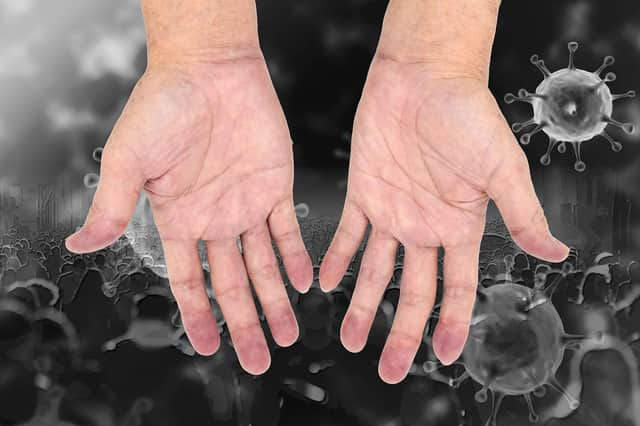The warning symptom of Omicron that appears on skin, lips and nails


Symptoms of the Omicron Covid-19 variant have been found to differ slightly from previous strains, which can make infection more difficult to spot.
While the NHS lists a high temperature, a new continuous cough, and a loss or change to your sense of taste or smell as the three main symptoms of coronavirus, these signs are less common among people infected with Omicron.
Advertisement
Hide AdAdvertisement
Hide AdInstead, Omicron has been found to cause symptoms which are very similar to the common cold, but health experts are now warning of a more unusual sign of infection that can affect your skin, lips or nails.
What effect does Omicron have on the skin, lips and nails?
People infected with Omicron may notice that their skin, lips or nail beds may develop a pale, grey or blue-coloured tinge, according to health experts at the Centre for Disease Control (CDC).
This symptom is thought to be a result of low oxygen levels in the body.
The CDC describes the symptoms as an “emergency warning sign” of Covid-19 infection and advises people to seek advice from their GP if they notice such a change in colour.
Advertisement
Hide AdAdvertisement
Hide AdOther emergency signs listed by the CDC include trouble breathing, persistent pain or pressure in the chest, confusion, and the inability to wake or stay awake.
What are the key warning signs of Omicron?
Studies have so far suggested that the Omicron variant appears to cause milder illness than previous Covid-19, with the main symptoms being very similar in nature to a common cold.
The most commonly reported symptoms, according to the ZOE symptoms tracker app, include:
- Runny nose
- Headache
- Sneezing
- Persistent cough
- Sore throat
However, other symptoms have also been reported including night sweats, nausea, fatigue, body aches and pains, fever, skin rashes and sore eyes.
Advertisement
Hide AdAdvertisement
Hide AdFor most people, symptoms should last for around five days before clearing up.
If your symptoms do not improve and you are concerned, you can get advice from the NHS online, or by calling 111.
If you feel unwell and you have symptoms you should take a Covid-19 test, even if your symptoms are mild, and self-isolate at home until you get your results.
This article originally appeared on our sister site, NationalWorld.